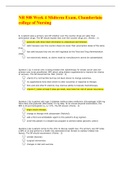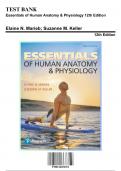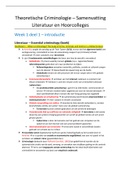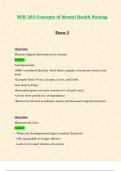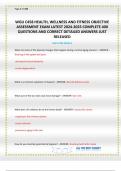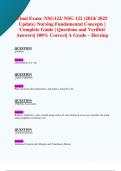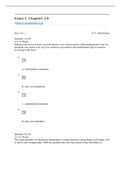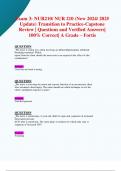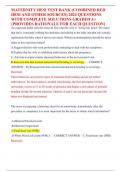Examen
NR 508 Midterm Exam, Chamberlain college of Nursing, NR 508-Pharmacology Mid-term, NR 508 Week 4 Quiz-Midterm (Version 1), Verified And Correct Answers
- Grado
- Institución
NR 508 Midterm Exam, Chamberlain college of Nursing, NR 508-Pharmacology Mid-term, NR 508 Week 4 Quiz-Midterm (Version 1), Verified And Correct Answers NR 508 Week 4 Midterm Exam, Chamberlain college of Nursing 1. A patient asks a primary care NP whether over-the-counter drugs are safer tha...
[Mostrar más]
